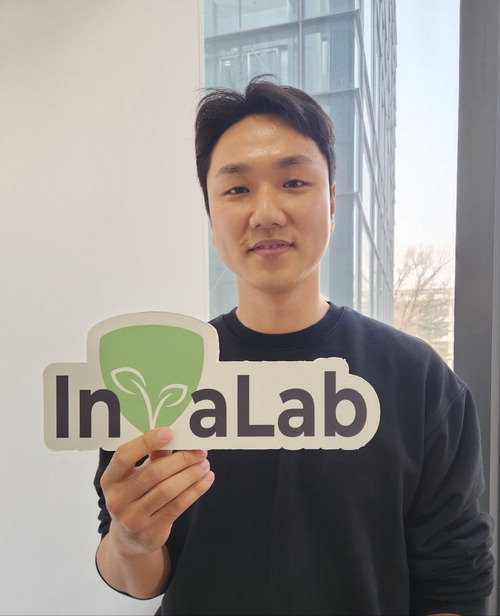We restore wildfire-damaged ecosystems using AI technology.

본문

Seed balls developed by InvaLab
Amid a series of recent wildfires, a young startup is drawing attention for its participation in ecosystem restoration using innovative technology.
Shin Wonhyeop, CEO of the ecological restoration startup InvaLab, is leading a project to rehabilitate areas damaged by the wildfires that occurred in Inje County, Gangwon Province, and Uljin County, North Gyeongsang Province in 2022. The project was launched last summer, and the full-scale restoration is now underway by inspecting the condition of seed balls—clusters of seeds wrapped in nutrient-rich soil—that were dispersed on-site using drones.
InvaLab plays a comprehensive role in vegetation recovery, from mosses to herbaceous and woody plants, by analyzing spatial data collected through drone-based remote sensing and integrating it with artificial intelligence (AI). The startup boasts over 90% accuracy in real-world detection and growth prediction technologies based on precise indicators. This approach complements previous efforts by local governments that often failed despite planting many seedlings, thus helping to save budget. To support this, dozens of flower pots with various soil conditions were observed in a greenhouse atop a building at Seoul National University’s College of Natural Sciences, where seed ball growth experiments were underway. The vitality of green shoots sprouting even from barren sandy soil was remarkable.
In an interview at InvaLab's office within the Seoul National University Startup Support Center, CEO Shin said, "The recent wildfires in Gangwon Province caused damage twice as extensive as three years ago, meaning the budget required will more than double." He added, "We are developing our own engine to address the issue more rapidly by integrating 360-degree LiDAR sensors with geographic information systems (GIS)."

After earning a master's degree in Plant Ecology and a Ph.D. in Landscape Architecture from Seoul National University, CEO Shin chose to launch a startup. "During my college years, I was captivated by the view of our land from an airplane, which inspired me to contribute to the preservation of natural ecosystems," he said. "My goal is to establish an integrated solution for Korea’s ecosystems, which are severely affected by invasive alien species."
Initially, the focus will be on the intensive management of key invasive plants, while also working to preserve highly valuable native species such as the Korean fir. Shin explained, “Within just ten years of invasive plant incursion, up to 90% of native species can disappear, indicating the severity of the threat.” He added, “We plan to actively collaborate not only with government agencies but also with private companies that are interested in ESG (Environmental, Social, and Governance) activities, in order to understand Korea's unique topography and develop proper ecological restoration plans and strategies.”
In partnership with the National Institute of Ecology, InvaLab is measuring the carbon absorption of plants through 3D scanning in areas like Namsan and Gyeryongsan. By working with drone companies to collect data and apply super-resolution techniques, the efficiency of data processing has significantly increased—tasks that used to take a full day can now be completed in just 30 minutes.



